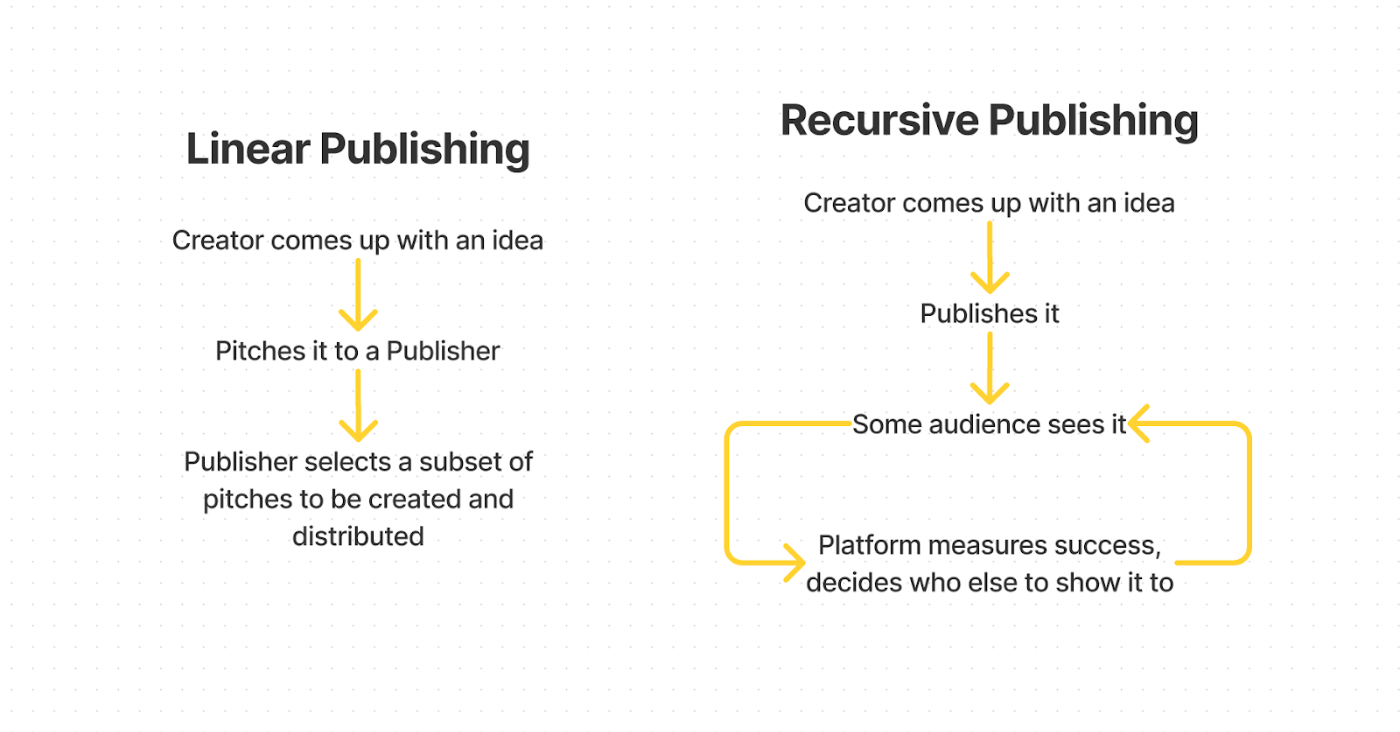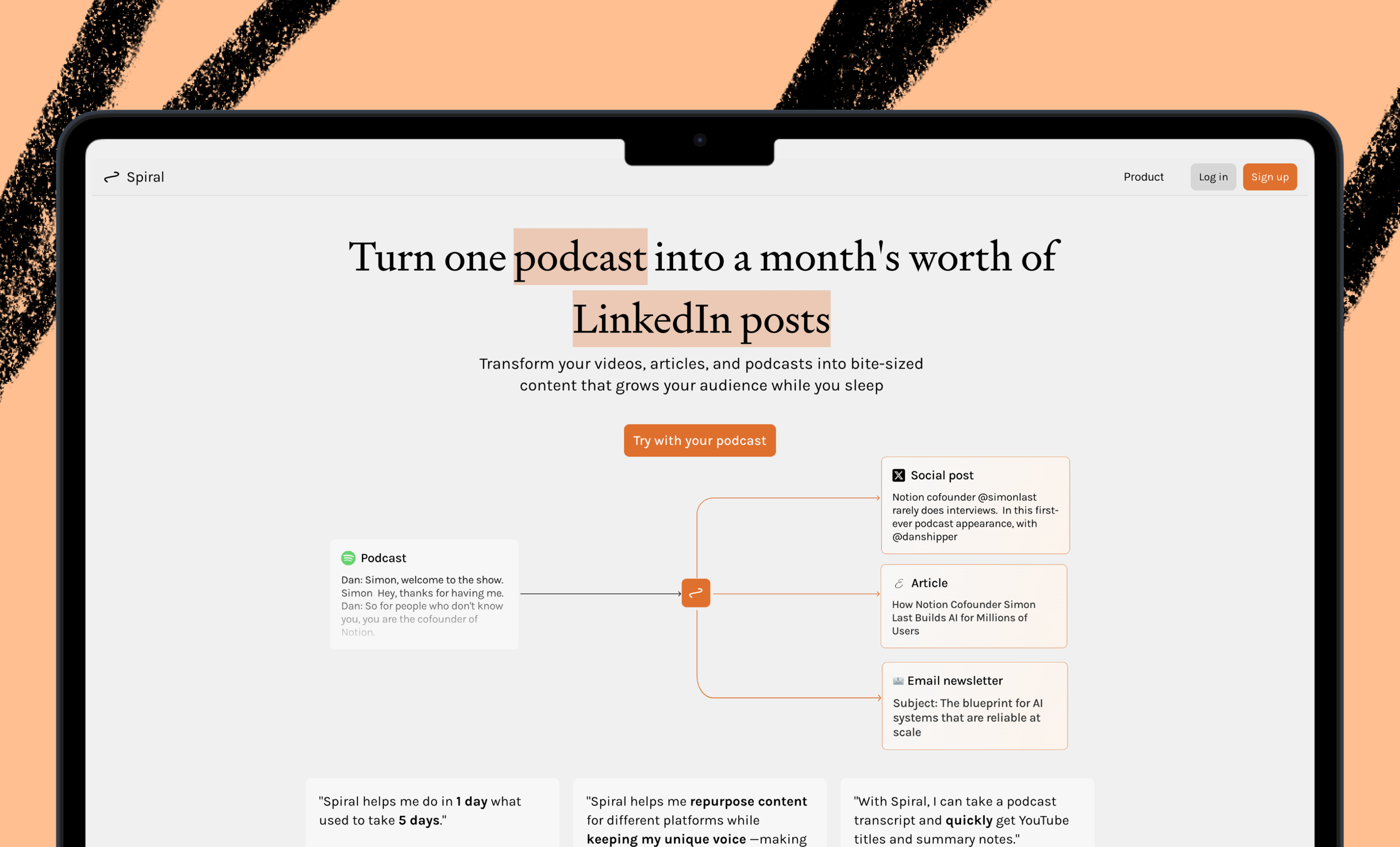
Sponsored By: Flatfile
Today's newsletter is brought to you by Flatfile.
Your team is wasting days or even weeks trying to import customer data, which is typically unstructured and filled with validation errors. The result? A poor customer onboarding experience, and wasting countless hours on wrangling spreadsheets.
Enter Flatfile.
Onboard customers faster, decrease time-to-value, and slash churn with Flatfile, a data onboarding platform with HIPAA, GDPR, SOC II Type II compliance out the box.
- Import customer data in as little as 60 seconds.
- Free your team from cleaning spreadsheets for hours.
- Provide a world-class data onboarding experience.
Since launching in 2018, Flatfile has onboarded data for over 2.2 million customers spanning 400+ of the best companies around the world. In just a few clicks, Flatfile intelligently imports, transforms, and validates your customers’ data, solving the most critical part of onboarding, in seconds.
I am obsessed with understanding how the internet is transforming media. Some days it seems as though the answers are obvious, and everything is already played out: the publishing world has been unbundled, individual voices will rule, large platforms will take all of the money, etc. But then there are times when I catch a glimpse of something unexpected, and I get the sense that this transformation is just getting started and there’s still so much we don’t understand. As time goes on I feel increasingly pulled towards the “we don’t know shit / this is just the beginning” camp. So today I’d like to propose a new idea—or at least a new framing—that I think points towards something important and under-appreciated about how media is changing: a distinction between what I am calling “linear” and “recursive” publishing systems.
In a nutshell, the idea is that the internet enabled a new type of publishing process that I am calling recursive because it runs on algorithms that perform an iterative looping discovery process where audience reaction → more distribution → more audience reaction → more distribution, etc. This is as opposed to the old world where a publisher would pick a few winners for wide distribution—what I am calling “linear publishing.”
The recursive publishing process originated to handle user-generated content in totally open platforms, but I think recursive publishing is currently in the middle of a multi-decade run where it will take over every kind of media: films, books, games, courses, music, magazines, news, and more. In the same way Marc Andreessen once declared “software is eating the world,” I think it’s fair to say “recursion is eating publishing.” My theory is that this will happen because recursive publishing is “strictly dominant” over the pre-internet model. This basically means recursive publishing is a strategy that will win no matter how well the opposing (linear) players perform.
But before I get too far ahead of myself explaining why I think recursive publishing will dominate and what the consequences of it might be, first, I should pin down what exactly I mean when I’m talking about “linear” and “recursive” publishing.
To start, here’s a diagram:
Of course reality is more complex than a binary classification of all publishing systems as either “linear” or “recursive”—real-world publishing systems all have a bit of both. But in order to understand the economic logic that makes recursivity important, it helps to examine both models in their purest form.
Linear Publishing
Pre-internet media systems were dominated by a linear flow of value from talent to publisher to audience. The process worked like this:
- Talent came up with ideas
- They pitched them to editors at publishing companies, who had different job titles in different industries, but all served essentially the same function of scarce resource allocation.
- Publishers picked some subset of the ideas to receive mass distribution, basing their decisions on many factors, like what worked in the market before, personal preference, and social status amongst their peers.
Of course, there is often some degree of recursion (i.e. feedback loops) in linear systems. Audience response shapes the future output of the system by influencing the thinking of publishers and talent (“wow people loved that thing, I should find more like it”), and by determining which publishers succeeded, and therefore had command of larger production budgets and distribution channels. But these recursive forces were indirect and weak compared to what we have today.
Recursive Publishing
The internet—and the advance of computing more generally—broke two critical assumptions the linear system was based on:
- It’s expensive to create and distribute content, so risk capital was required upfront.
- It’s impossible to publish everything, because there was a basically fixed amount of shelf space and airwaves to go around.
As more people came online, publishers faced a new long tail of competitors. Newspapers battled with blogs, Movie studios sparred with YouTubers, etc. But their funding, brands, and audiences still gave them a huge advantage—so much so, that it seemed like their basic publishing process would stay the same, just distributed through new channels like email and iOS rather than paper and DVDs. For a long time the internet seemed like it would complement rather than disrupt their publishing process.
But all the while in the background, a new system was evolving and becoming more sophisticated every day. It started at the cheapest forms of media (‘user-generated’ content, a.k.a. social media) and is gradually working its way up-market.
This new system ends with a recursive loop, rather than terminating in a straight line:
- Talent comes up with idea
- Publishes content to a relatively open platform
- Some audience sees it
- The platform measures audiences initial reaction and automatically boosts successful content to more people it thinks might like to see it
- New audiences see it
- GOTO 4
Instead of gatekeeping scarce production and distribution resources before a piece of media is published, recursive systems want to publish as much content as possible, and then dynamically allocate more and more scarce attention and resources to the “fittest” ideas.
Why Recursion Wins
Nobody actually knows what’s going to work in the market—especially when it comes to content. This is not a phenomenon that’s exclusive to the internet. For example, almost nobody at record labels and movie studios thought people would like Nirvana or Forrest Gump, but they both turned out, against all odds, to become massive hits. Now imagine how many ideas like these we’ve never heard of because they never got made?
It’s the job of editors at publishing companies to decide what things might make the cut, and many editors have done a brilliant job and made daring choices, but they are fighting a losing battle against recursive processes.
If you can set up a system where anyone can publish anything, and dynamically allocate more resources to the ideas that seem most promising, you’re much more likely to produce a lot of surprisingly awesome output. This is important for reasons deeper than just “people are bad at predicting success”—I think there’s something about surprise that audiences are actually looking for in the media they consume. We crave novelty, but it’s hard for novel output to come from systems run by people nervous about making bad bets. It’s like asking a person to come up with a random color (you probably thought “blue”) or letter (did you guess “c”?) It’s hard to do.
Of course, there is a big downside to recursive systems: they output a lot of garbage. Some of it is garbage that nobody wants, but this actually isn’t a big deal. What’s worse is when recursive systems amplify content that causes real-world harm. Memes are seeds for worldviews, and worldviews drive behavior, and behavior can cause harm. In the past, linear systems minimized this downside almost automatically. It wasn’t that hard for editors to say “no” to wild conspiracy theories or harmful stereotypes, as long as they conformed to the social expectations of their friends and family. But when you let anyone publish, some people are going to say some crazy shit and it’s not always clear what to do about it.
The problem is, the harm caused by garbage output is mostly external to the recursive publishing system. Internally, all the algorithms and accountants see is winning: more engagement, more attention, more dollars, etc. The only time the company notices is when people (or politicians) start getting angry. It’s a classic problem of negative externalities—the same reason the south pole is melting.
If we just left it at that, it would be perhaps a pretty close battle between linear and recursive publishing. Linear publishers allocate big pools of resources to a select few projects, while recursive publishers generate a chaotic vortex of compelling new ideas and genres that couldn’t have been discovered any other way.
Except there are two critically important truths we haven’t accounted for yet:
- Audience interests are a moving target. What we’re interested in tomorrow depends, in part, on what we see today.
- Recursive systems are becoming ever more capable of funding larger-scale projects, a trend that will only continue.
The implications of these two facts are devastating for linear publishing.
Dynamic Interests
The other day I watched a YouTube video explaining the aerodynamic implications of the new F1 car design. I never would have been in the target market for this video had I not previously watched Drive to Survive on Netflix. And I never would have watched that show if it weren’t for Netflix’s algorithm sensing that something interesting was happening with that documentary, and deciding to show it to people otherwise unlikely to be interested in Formula 1.
Recursive publishing systems aren’t just about the loop of the algorithm showing content to more people, they’re also about the loop of content begetting content. First, you have the weird sleeper hit Squid Games, then you have the even weirder knock-on effects, like the Mr Beast version of it (which happened to get even more views than the original).
Because of recursive publishing, this loop is spinning faster and faster, and culture is getting almost literally whipped up and chaotic. This makes life difficult for editors at linear publishing companies. You can almost feel it when you watch a Hollywood movie and you can tell the writers are struggling to make something that is simultaneously entertaining but has to stay within the bounds of “normie” culture. I think we all have this idea that the internet is a weird place full of insider jokes and memes that you only understand if you’re “extremely online,” but I believe internet culture is sucking more and more people in and generating more and more subcultures. In other words, Twitter actually is real life.
Over and over again, we’ve seen proof that cheap, weird internet content can sometimes be more compelling than high production-value normie content. You can see it in the statistics of how people spend their time, but you can also see it in the rare head-to-head battles that happen. In the past it was hard to compare Hollywood entertainment to internet content because they had such different form factors: one is short, the other is long. But then Quibi launched, and got annihilated by little more than an algorithm and a million teenagers, moms, uncles, and dogs performing for free.
The lesson I take from it is that people care about production value to an extent, but they also care a lot about memetic novelty. Show me an original and compelling idea or worldview, and I’ll pay attention even if production value is so-so. Show me a lavish CGI rendering of a cliche narrative, and I’m probably going to get bored and check my phone pretty soon.
That being said, recursive publishing systems are not synonymous with cheap user-generated content. In fact I think one of the most interesting trends to watch in the future is the rise of “premium” recursive publishing.
Premium Recursion
What happens when platforms don’t just reward successful content with increased distribution, but also increased funding to make higher-production-value content? This is the new edge of experimentation, and I am excited to see it.
A cliched “creator economy” example is Mr Beast, who’s basic flywheel looks something like give away money in a weird way → get views → get more money → give away more money in weirder ways. Simple, but effective.
The same thing is happening on Substack, where the most successful writers are starting to build teams, and this is the aspiration of pretty much all creator platforms. We are still in the earliest stages of this, but I think the natural endpoint is a blending of the lines between premium and internet-native content.
It goes the other way, too. Platforms and publishers of traditionally premium content are becoming more recursive, thanks to the internet. The Drive to Survive and Squid Games examples I named above are perfect examples of that on Netflix. Their strategy is fully recursive, even though they don’t let anyone upload any type of video. Same goes with music: record labels don’t make your career anymore, they help support and accelerate existing traction you already had on Spotify. Another great example in this is news: publishers now let a thousand flowers bloom and let algorithms on Twitter sort it out.
End Game
To me the most culturally interesting thing to watch is what happens when weird memes turn into weird movements that sustain themselves for weirdly long. It is no coincidence that we see things like “birds aren’t real” and “$GME to the moon” (which, by the way, GameStop stock is still up 40x since 2020) in the age of recursive publishing.
It feels like our old models of how society works aren’t predictive anymore now that the media engine which sits upstream of culture (which sits upstream of behavior) is fundamentally changed. I can’t get the image of a calm stream turning into a turbulent rapid out of my head.
But that’s an essay for another day.
Ideas and Apps to
Thrive in the AI Age
The essential toolkit for those shaping the future
"This might be the best value you
can get from an AI subscription."
- Jay S.
Join 100,000+ leaders, builders, and innovators

Email address
Already have an account? Sign in
What is included in a subscription?
Daily insights from AI pioneers + early access to powerful AI tools











Comments
Don't have an account? Sign up!